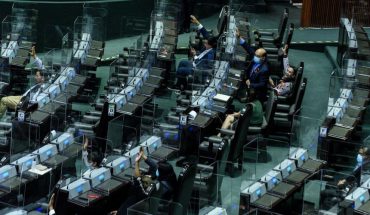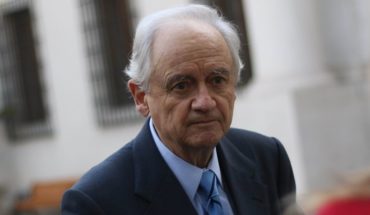In most countries that are not (direct) producers of medicines of vital importance to the population, the costs, in money, to acquire them are extremely high. The pharmaceutical industries (usually multinational corporations) speculate – from their market power – the greatest possible economic returns for their owners. For “massive” cases of diseases, non-drug manufacturing countries are supposed to acquire them in laboratories that have exclusivity through industrial property over their manufacture and export. An example of this is the case of the creation of vaccines for SARS-CoV-2, where the largest source of funding for their research, in Europe and the United States, was from public funds or donations. However, after being invented, tested, tested, etc., pharmaceutical laboratories imposed their exclusivity in production through the powers granted to them by industrial property, refusing to share the formulas, something contrary to what is understood as open science (open science), so that the majority of the population could have access to vaccines through biosimilars or generics manufactured by their own countries, or purchased at low cost from laboratories at competitive prices.
The paradox of this situation is that all countries, in accordance with international industrial property standards, including the “Agreement on Trade-Related Aspects of Intellectual Property Rights” (TRIPS and Free Trade Agreements (FTAs), can make legal use for the acquisition or manufacture of medication that corresponds to the common good of the respective territories through what is known as “Compulsory Licenses, o Non-Voluntary”, or through “government uses”, but, except for the exceptions of Brazil and Ecuador, in Latin America no other country has made use of this possibility that is used normally in the United States. The latter occurs due to legislative deficiencies that make the process cumbersome, unlike what happens in developed countries, together with the pressures of multinational laboratories, or lack of political will. Chile is no exception, even though in 2019, in accordance with Chile’s current industrial property law, it was declared through the Ministry of Health that there were public health reasons to grant a compulsory license with respect to patents that restricted access to SOFOSBUVIR, a medicine for hepatitis C, such a license was never granted.
Again Chile has the need, and opportunity, to make use of a mandatory license to facilitate access to a key treatment to save patients at serious risk from Covid-19, which corresponds to the drug known by its trademark PLAXLOVID.
In this context, and taking into consideration the recommendations of the World Health Organization regarding the use of this treatment, INNOVARTE ONG has requested, together with the College of Pharmaceutical Chemists of Chile, the Ministry of Health to declare the existence of public health reasons for declaring a compulsory license with respect to the patent that restricts the production and import of PAXLOVID, not yet available in Chile, a request that, incomprehensibly, after 8 months has not yet been answered by the Authority. A similar request has been requested by Corporación INNOVARTE, and other members of civil society, regarding PAXLOVID in Peru, where the government has been urged to apply the so-called government use of the patent. To facilitate the understanding of this type of legal mechanisms, about a month ago a seminar was held in Peru for the governmental use of patents, in which Luis Villarroel (director of INNOVARTE ONG), as an expert, presented on the importance of government use and access to medicines, carrying out experience compared to countries such as the United States, where this possibility would avoid the complexities imposed by the compulsory licensing procedure.
Returning to Chile, and in line with the recommendations to facilitate the use of industrial property flexibilities made by international organizations in the “Drugs 2” project (Bulletin 9914-11), which modifies the Health Code to regulate generic bioequivalent medicines, vertical laboratory integration would be avoided.s and pharmacies, as it contains amendments to the Industrial Property Law to facilitate the process of granting Compulsory Licenses. The government has made modifications that are important, but still insufficient, since it maintains a procedure that takes more than a year to complete, so it is important that project number 13572-11, presented in 2020, on compulsory licenses, is reactivated, and that it does not “sleep” in Congress due to its great importance, the one we were able to realize with the current pandemic. There are many other emergency drugs, which, if these bills progress, could provide accessibility solutions, and quasi-unthinkable economic solutions, for a huge amount of the population (there are many massive treatments of very high costs that are delayed).
This type of effort must be accelerated, both nationally and internationally, despite the defenses that the laboratories will exercise, with arguments that become laughable, such as the case of Pfizer, which appealed that the industrial protection of its invention was accepted by Human Rights. What INNOVARTE NGO has been doing is relevant, because international coordination for these achievements is crucial.
In any case, while the latter does not happen, it is important that Chile uses its rights, accelerating the discussion of the aforementioned bills and advising experts on the subject for their correct national and international presentation.
Let us not miss this type of issue because, despite their little knowledge by the vast majority of the population, the health benefits they would bring would be, literally, for the whole country in cases that merit their urgency. Many people die because they do not have access to high-value medicines, and where laboratories, despite – and I repeat and emphasize this – that the financing of their research has been state-owned, as in the case of vaccines for Covid-19, should not prevent the legal, legitimate and ethical use of the license that would save, opportunely, lives.
Follow us on
The content expressed in this opinion column is the sole responsibility of its author, and does not necessarily reflect the editorial line or position of El Mostrador.





